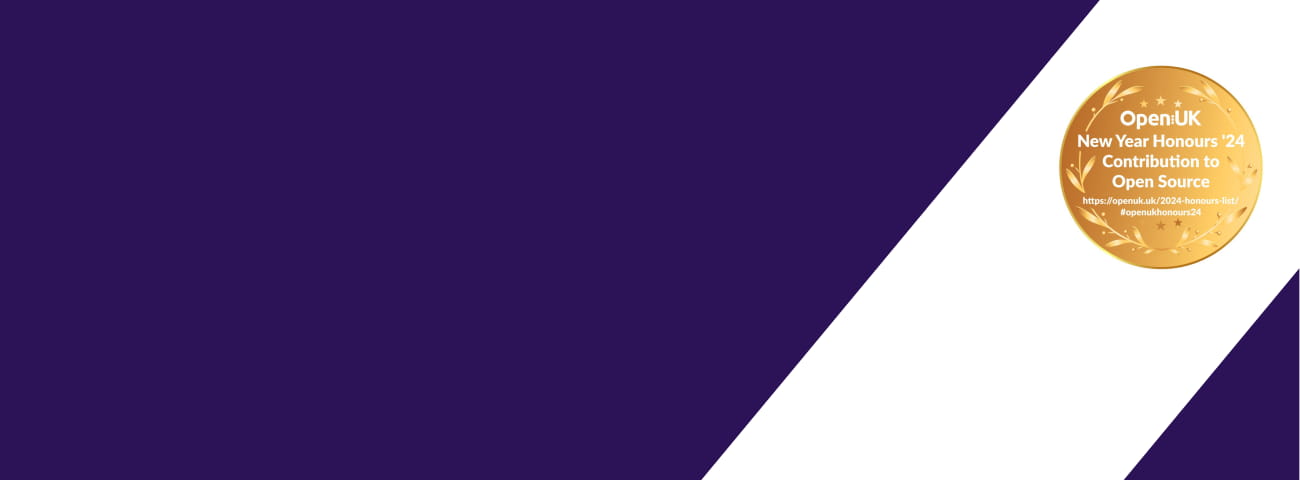In conversation with Camila Macedo, a recently hired software engineer at Foundries.io, Marketing Director Anna Chadenkova discusses her perspective on the state of open-source software in the embedded device industry as we move into the mid-2020s.
A supportive community
AC: Camila, how long have you been developing open-source software – has it been a part of your working life from the start?
CM: Yes, Anna, it definitely has! I started developing as a kid – my journey in development started when I was just 16 years old. From the beginning, it was all about open-source for me. I began as an intern in the IT field, and that's when my involvement with Linux really took off. I was exposed to the benefits of open-source software straight away – Linux developers sustain a collaborative community of people who are committed to working together to make something of value to the world. There is a real sense of mutual support in the community – the Linux folks embraced me as a raw, young developer and helped me to learn a lot about software development. I’ve been a professional developer for more than 20 years now, and those early experiences in the open-source community set me on the right path to a successful career.
AC: That career has not always been in the embedded world, has it?
CM: Not at all – for most of my career, I have been in enterprise computing. I have been lucky enough to be involved in open-source software projects for most of that time – for instance, I spent six years working for Red Hat. I have also been involved in Google’s Summer Coding Program, which I really enjoyed because it enabled me to mentor students, helping them to learn, grow their engineering skills and step on the pathway towards a full-time job in software development.
Three benefits of open-source development
AC: You joined Foundries.io in 2023, so you have now made the move from the enterprise to the embedded world. In your experience, what benefits do OEMs and the embedded industry generally gain from the growing availability of commercial-grade open-source software and tools?
CM: I have found that there are three features of open-source software that really differentiate it from private software developed exclusively by a single company. First is precisely that open-source software is not created by a single organization. The biggest open-source projects attract contributors from all over the world, and these developers are of all types - age or gender doesn’t matter - and with experience of many different types of computing systems and applications. That diversity means that you get more innovation and creativity in problem solving, rather than being stuck in one company’s established way of doing things.
The second benefit is quality: the software is reviewed and checked by many different developers before it is released. Open-source software goes through rigorous checks by many people. The process encourages transparency – engineers are focussed on finding the bugs and faults; there is nowhere to hide. So the quality of released open-source code is very high.
And third, users benefit from the open-source basis of software distribution: when you buy software from a private company, you are vulnerable because if that company goes out of business or stops supporting the software, users are left high and dry. Open-source software is not dependent on a single company, so users can be confident that it will be available and supported for as long as it is needed.
AC: Does this explain why open-source software is as much of a phenomenon in embedded computing as it is in the enterprise world?
CM: I would expect the role of open-source software in embedded computing to continue to grow, not least because the Linux environment is the foundation of everything in the IoT. Foundries.io™ itself is a symbol of the success of open-source software: our Linux microPlatform™ (LmP) operating system is the basis of our products, and the FoundriesFactory® platform is the industry’s best way to orchestrate the development, deployment and maintenance of products built with open-source software such as Docker and The Update Framework.
But just because the embedded computing industry is heavily reliant on open-source software, we should not take it for granted. Some companies – and Foundries.io is certainly among them – are very good contributors to the open-source software code base. But too many companies enjoy the benefits of open-source products without giving anything back to the community. I would like to see far more OEMs actively encouraging their developers to take the time to contribute to open-source software projects. The more developers and companies are involved, the healthier the open-source ecosystem will be, and the better it will be for everyone.
Maintaining a vibrant community of open-source developers
AC: Speaking of development, are we attracting a big enough pipeline of developers with open-source knowledge and experience? What was your experience of trying to enter the industry as a young woman in a predominantly male world?
CM: One thing about development is that it is easy to connect with people virtually: I got huge encouragement and support from the LinuxChix community, for instance – they really helped me a lot. Plus today, there is far more awareness of the need to be inclusive and attract a diverse group of people into the industry. I think you can enter the industry and pursue your dreams here now regardless of gender, nationality or background.
AC: And if you could turn back the clock and give your 16 year old self a piece of advice as you started out in open-source software development, what would it be?
CM: If I could speak to my 16-year-old self, my advice would be: don't worry about finding your place in the industry. Instead, focus on choosing one project. Dedicate yourself to it, and contribute as much as possible. This approach will not only enhance your learning but also benefit the community as a whole. Remember, patience is key; you can't learn everything all at once. Proceed step by step. What's important is the love and dedication you put into your work.
I've always poured my heart and soul into what I do, and I believe if you do the same, you'll always find a place in an open-source project and in the industry. This can be the foundation of a fulfilling career.
AC: Thank you Camila for opening up about your experience of making a career in open-source software. We are glad to have the benefit of your skills and experience at Foundries.io!
CM: Thank you Anna, it’s been my pleasure.
We are delighted to share that Camila Macedo has been honored by OpenUK as one of the leading open source influencers in the UK for 2024.
Linux® is the registered trademark of Linus Torvalds in the US and other countries.

